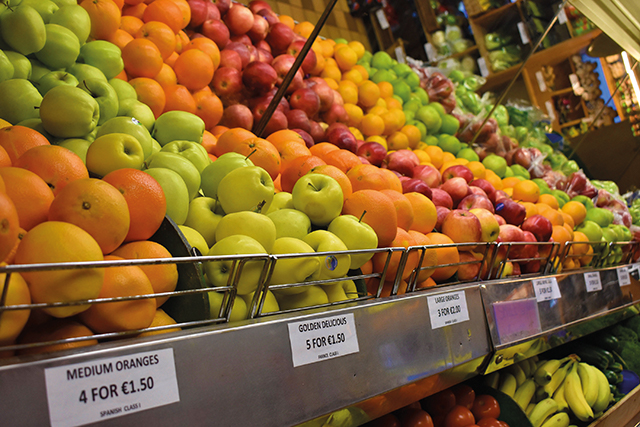
[dropcap]T[/dropcap]he climate crisis has changed how we as a society view aspects of mass-production and what we consume, as we shift to more environmentally-friendly methods. Veganism is regarded as an eco-friendly alternative – but is it really the answer to the climate crisis?
Veganism has indeed evolved to become a genuine alternative option to eating meat, with vegan products being readily available in supermarkets, restaurants, and on fast-food menus. Recently, Cadbury have announced they will be releasing two vegan chocolate bars.
A key link between veganism and the climate change movement can be found in its heavy rejection of dairy and livestock farming methods. Cows are often cited as the largest cause of producing damaging emissions on farms. As reported by The Guardian on the impacts, “waste from cattle farms often contaminates soil and waterways and contributes to greenhouse gas emissions and the acidification of soil”.
Another factor considered is the amount of food – in particular meat, that is both overproduced and then wasted. The Irish Environmental Protection Agency (EPA) reported in March this year “from a climate perspective, food loss & waste is a major issue, contributing 8-10% of global anthropogenic GHG emissions”. Based on these two stated impacts meat and farming have on the climate crisis, is becoming vegan the answer?
Society has recently been modifying elements of living to be more environmentally friendly. This can be small changes like a paper bag instead of plastic, or electric cars – which offers an innovative alternative to fuel consumption, while also showcasing better technology and convenience.
But why is meat different?
Veganism rejects the use of animal products of any kind. Is this an environmental change society would fully support? Veganism is not as convenient as plugging in an electric car or planting a tree, but instead a lifestyle choice to not exploit animals for consumption – removing meats, dairy, and many other animal products from our lives entirely.
Instead of removing meat from the menu for the majority, why not support local farmers, eco-friendly farming practices, and the sustainable wellbeing of farm animals?
Terrapass, an environmental group states that “you can reduce the carbon footprint of your food by up to 7% by eating locally”.
While turning vegan is one sustainable option for some, it is not the only answer to the climate crisis, so if you don’t want to be vegan, there are other positive ways to help the environment as outlined.
Jack Redmond.
Image Credit: Alison Clair



